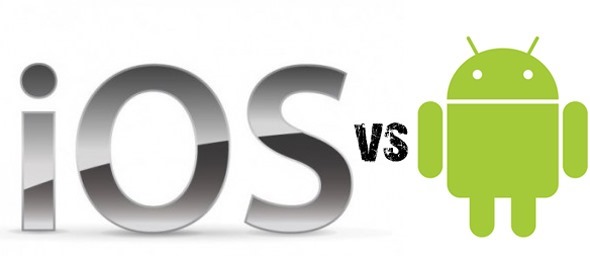Most of you following the news here at Redmond Pie will own a
smartphone. In fact, I’d guess that all of you own a device boasting
features qualifying your cell for the "smart" moniker.
Apple is credited with shaping the market to its current state, and if one takes a look at all smartphones post-2007 – when the fruit company first introduced the original iPhone to the world – it’s not difficult to see the huge impact and influence of the game-changing product. Google hopped aboard the gravy train back in 2009, and hasn’t really looked back. With several hundred thousand daily activations of its mobile OS (as counted by Google Android Chief Andy Rubin), it has become the most widely-used software on the mobile platform – even leaving Apple’s iOS in its wake.
Nowadays, a massive fifty percent of U.S. mobile consumers own smartphones, so the competition for supremacy is fiercer than it’s ever been. Although Microsoft is preparing to make its mark sometime later this year with the mobile version of its eagerly-awaited Windows 8, the Redmond-based software maker has struggled to make any sort of significant impact since overhauling Windows Mobile, regrouping with Windows Phone 7.
Heavy collaboration with Finnish outfit Nokia, as well as the speculation of Windows 8 tablets manufactured by ASUS render Windows 8 an exciting prospect for both smartphone and tablet. For the time being, though, the focus remains firmly on Google’s Android and Apple’s iOS – both of whom are proving to be catalysts in the ever-increasing reliance on digital products.
Mobile security firm Lookout have created a rather interesting infographic documenting the entire story of how iOS and Android came to be the forces of today – leaving scarcely a stone unturned:
Perhaps the most interesting nugget of information is the sheer number of projected iOS and Android activations (cumulatively) by the end of this year. With both camps boasting tens of billions of app downloads, expect the figures to continue growing exponentially – particularly with Apple appearing to have moved its iPhone launch period in line with the holiday season.
Will Android – by offering a variety of devices – always remain on top? Leave your thoughts on our Facebook and Google+ pages
Apple is credited with shaping the market to its current state, and if one takes a look at all smartphones post-2007 – when the fruit company first introduced the original iPhone to the world – it’s not difficult to see the huge impact and influence of the game-changing product. Google hopped aboard the gravy train back in 2009, and hasn’t really looked back. With several hundred thousand daily activations of its mobile OS (as counted by Google Android Chief Andy Rubin), it has become the most widely-used software on the mobile platform – even leaving Apple’s iOS in its wake.
Nowadays, a massive fifty percent of U.S. mobile consumers own smartphones, so the competition for supremacy is fiercer than it’s ever been. Although Microsoft is preparing to make its mark sometime later this year with the mobile version of its eagerly-awaited Windows 8, the Redmond-based software maker has struggled to make any sort of significant impact since overhauling Windows Mobile, regrouping with Windows Phone 7.
Heavy collaboration with Finnish outfit Nokia, as well as the speculation of Windows 8 tablets manufactured by ASUS render Windows 8 an exciting prospect for both smartphone and tablet. For the time being, though, the focus remains firmly on Google’s Android and Apple’s iOS – both of whom are proving to be catalysts in the ever-increasing reliance on digital products.
Mobile security firm Lookout have created a rather interesting infographic documenting the entire story of how iOS and Android came to be the forces of today – leaving scarcely a stone unturned:
Perhaps the most interesting nugget of information is the sheer number of projected iOS and Android activations (cumulatively) by the end of this year. With both camps boasting tens of billions of app downloads, expect the figures to continue growing exponentially – particularly with Apple appearing to have moved its iPhone launch period in line with the holiday season.
Will Android – by offering a variety of devices – always remain on top? Leave your thoughts on our Facebook and Google+ pages



কোন মন্তব্য নেই:
একটি মন্তব্য পোস্ট করুন